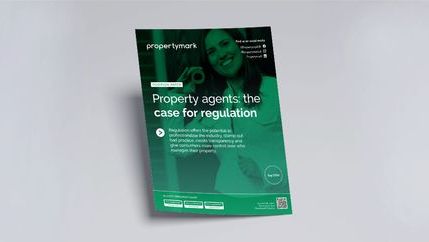
Professional body membership
Compared with other parts of the UK, Northern Ireland operates with a ‘lighter touch’ approach, relying mainly on general consumer protection rather than bespoke measures for the rental market.
Tenants voiced concerns about affordability and clarity, landlords called for greater professionalism and accountability, and letting agents sought a consistent regulatory framework.
The report states if agents use their membership in a Department for Communities (DfC) approved body it would show they meet the minimum regulatory standards. This would lessen the administrative burden on the DfC too.
Propertymark members are already qualified to a Level 3, adhere to a strict code of conduct, are regulated, and have access to numerous benefits and sector updates to keep them fully informed on legislative changes. Mandatory client money protection is also part of membership, highlighting we fully safeguard tenants.
Study programmes
Propertymark Academy is the home of education and training for property professionals offering enrolment to specialist, regulated study programmes which you can complete flexibly through distance learning.
Mirroring Scotland
These proposals align closely with existing frameworks in Scotland where measures have successfully raised standards across the sector as outlined in our 2024 position paper.
A mandatory qualification, like Scotland’s Level 6 requirements, would ensure that all agents possess the skills and knowledge to operate ethically and effectively.
Comprehensive reform
Government statistics reveal that the private rented sector accounts for approximately 20% of households in the UK.
As a regulatory body, Propertymark has long advocated for robust frameworks across the UK for all property agents, and the findings of this report validate the need for change in the sector. Current voluntary schemes and piecemeal measures have led to a fragmented landscape, with significant fluctuation in professionalism and accountability.
Our position paper on the regulation of property agents highlighted that 87% of letting agents who had completed a qualification said it had a positive impact on their professional capabilities, with 84% stating that the introduction of qualifications had been positive for the sector overall.
Property agents: the case for regulation
Regulation offers the potential to professionalise the industry, stamp out bad practice, create transparency and give consumers more control over who manages their property. Minimum qualification requirements and statutory Code of Practices to be adhered to by all letting and managing agents in England and sales agents across the UK should be introduced.
Clarity on prescribed fees
The report draws some attention to high tenant fees and a perceived lack of transparency among letting agents. Mystery shopping exercises revealed that over a third of agents still charge pre-tenancy fees, despite legal clarifications deeming such fees unlawful when benefitting landlords.
Clarity is needed for prescribed allowable fees. The banning of fees has only been confirmed through legal cases and is inconsistently enforced.






